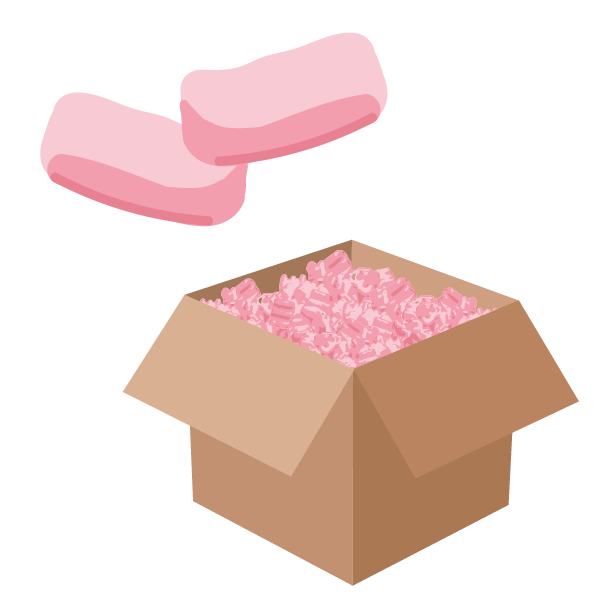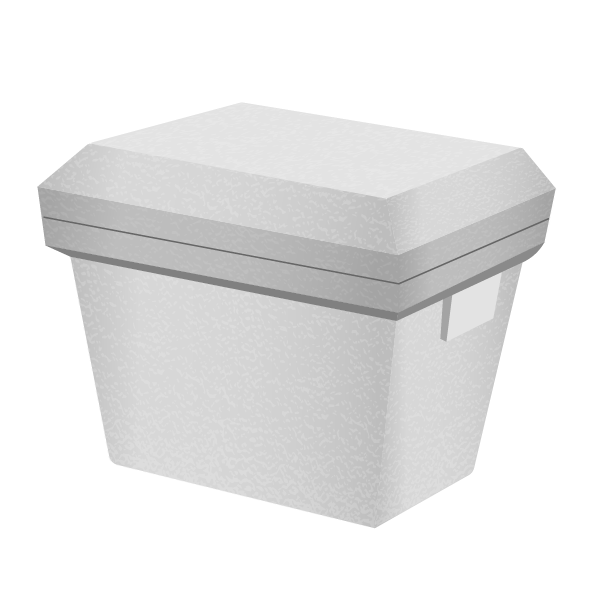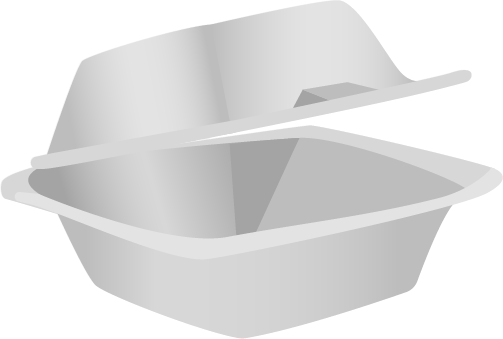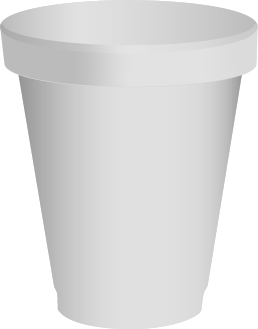Expanded polystyrene (EPS) ban
What is expanded polystyrene (EPS)?
EPS foam is a lightweight cellular plastic material consisting of small hollow spherical balls that are expanded and processed through a variety of techniques.
For the legal definition, read the expanded polystyrene definition as it is listed in the law.
Problems with expanded polystyrene
Expanded polystyrene materials are difficult to recycle, and it’s expensive. They aren’t accepted in most of Washington’s residential recycling programs and are treated instead as a contaminant. Because they are not readily recyclable, the materials end up in landfills, waste-to-energy facilities, or the environment.
EPS materials are extremely brittle and break easily into tiny pieces. These small pieces scatter in the wind and contaminate the environment.
Bans on expanded polystyrene begin in 2023 and 2024
In June 2024, portable coolers will be banned.
In June 2024, food service products like containers, plates, bowls, clam shells, trays, and cups will be banned.
- Block EPS packaging material
- Trays and packaging for raw, uncooked, or butchered meat, fish, poultry, or seafood, vegetables, fruit
- Egg cartons
- EPS containers for drugs, medical devices, and biological materials or shipping perishable commodities from a wholesale or retail establishment
Who does the ban apply to?
This ban applies to any person, firm, association, partnership, corporation, government entity, organization, or joint venture that sells or distributes the EPS products covered by this ban.
Can my organization use up existing inventory after the ban’s effective date?
No. This law bans the sale and distribution of EPS materials, even if businesses or entities have previously purchased stocks. We encourage entities that currently distribute and sell EPS to transition to a compliant material before or by the effective date of this ban.
How will the law be enforced?
We will respond to non-compliant businesses, institutions, manufacturers, and distributors with education, resources, and technical assistance. Though we intend to provide assistance in gaining compliance whenever possible, repeated and continuous non-compliance may result in up to a $250 fine for a first offense and a $1,000 fine for repeat violations thereafter.
What are alternatives to expanded polystyrene?
There are a lot of alternatives to expanded polystyrene products. When New York state's EPS ban went into effect the New York State Department of Environmental Conservation created a guide to alternatives to EPS:
- Reference Guide of Alternatives to Single-Use Expanded Polystyrene Foam – covers food and beverage containers and loose fill packaging (“packing peanuts”).
We're posting this guide as a reference for Washington state residents and businesses.
What’s next?
We are providing technical assistance and guidance to manufacturers of the prohibited products. Also, we are working with local governments, producers, distributors, retailers, associations, and nonprofits to develop outreach materials.
Contact information
Heather Church
Waste reduction and recycling specialist
epsban@ecy.wa.gov
509-688-5358










